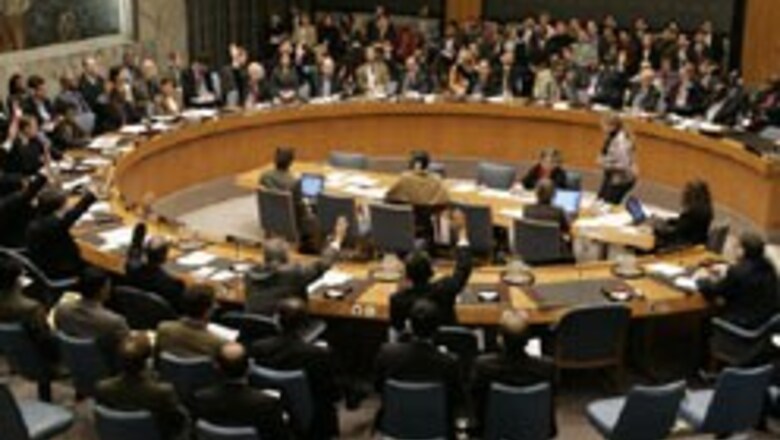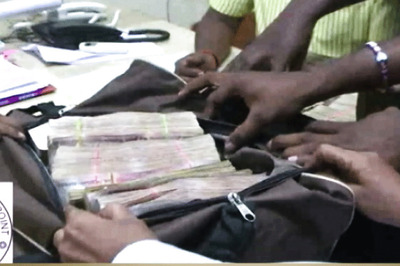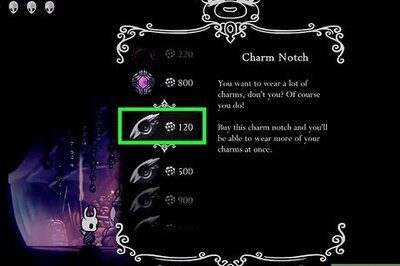
views
Moscow: The presidents of Russia and China on Monday called on Iran to fulfill the UN Security Council's demands over its disputed atomic program, a day after the Islamic republic announced it was partially suspending cooperation with the UN nuclear watchdog.
The United States, meanwhile, said the Iranian response to the sanctions was a "step in the wrong direction."
In their joint statement, Vladimir Putin and Hu Jintao said their countries — permanent, veto-wielding Security Council members — were ready to "search for a comprehensive, long-term and mutually acceptable solution to the Iranian nuclear problem."
They also emphasised that the increasingly tense dispute should be resolved "exclusively through peaceful means."
Russia and China have significant trade ties with Iran and have used their veto power to push for less stringent sanctions against their ally.
That stance has often put them at odds with the other veto powers, the United States, Britain and France, which favour a tougher approach to the nuclear dispute.
However, the two joined the rest of the Security Council on Saturday in voting to impose the new sanctions — the second in three months against Iran for its refusal to suspend uranium enrichment.
The sanctions included the banning of Iranian arms exports and the freezing of assets of 28 people and organisations involved in Iran's nuclear and missile programs.
Iran rejected the sanctions and later announced a partial suspension of cooperation with the International Atomic Energy Agency.
Its hardline President Mahmoud Ahmadinejad said the latest UN sanctions would not halt the country's uranium enrichment "even for a second."
The European Union's foreign policy chief, Javier Solana, said he would soon resume talks with Iran's top nuclear negotiator.
Solana, speaking in Brussels, Belgium, said he had "some contact" with Iran's Ali Larijani on Sunday and that "we'll try again today, the sooner the better."
Solana and Larijani have been the principal negotiators on the issue of Iran's nuclear program, which the country says is intended for peaceful purposes but the West believes may be a cover for the development of nuclear weapons.
The European Union is eager to continue talks with the Iranians as part of the West's "twin-track" approach — gradually imposing tougher sanctions if the country refuses to halt enrichment while offering economic and political advantages if it falls into line.
Nicholas Burns, undersecretary for political affairs at the State Department, has indicated that the United States may seek a third round of penalties unless Iran responds positively to demands to end the enrichment program.
Referring to the unanimous Security Council vote, Burns pointed out that even fellow nonaligned countries such as Indonesia — the world's largest Muslim country — and South Africa supported the measure. Iran is a longtime member of the Nonaligned Movement.
"Iran is isolated in the world, it has few friends," Burns said in Brussels. "Iranians have to understand they don't run the world, they don't have unlimited power, and we are sending a clear message from the rest of the world that we want to contain and block Iranian power, especially on the nuclear side."
PAGE_BREAK
In Washington, Tom Casey, the State Department spokesman, said, "Ahmadinejad seems intent on taking Iran down the wrong path."
Earlier on Monday, the Russian state-run company building Iran's first atomic power plant said that Iran had made its first payment toward the delayed construction of the Bushehr plant since a dispute over financing halted the project.
Russia and Iran have been at loggerheads over financing of the plant, and Russia said earlier this month that nuclear fuel would not be supplied this month, as had been planned. The delays prompted Russia to indefinitely postpone the reactor's launch, set for September.
Iran, meanwhile, angrily denied falling behind in payments and accused Russia of caving in to US pressure to take a tougher line on Iran for defying international demands to halt parts of its nuclear program.
Russian officials denied media speculation that it was putting political pressure on Iran under cover of the financial dispute.
"The fact that our Iranian partners have overcome their difficulties is positive, however, it far from compensates for the requirements of the (project) that have arisen during the period of nonpayment," Atomstroiexport spokesman Sergei Novikov said in a statement.
The company also said the new payment was just half of the monthly amount needed for a normal construction schedule to be resumed.


















Comments
0 comment